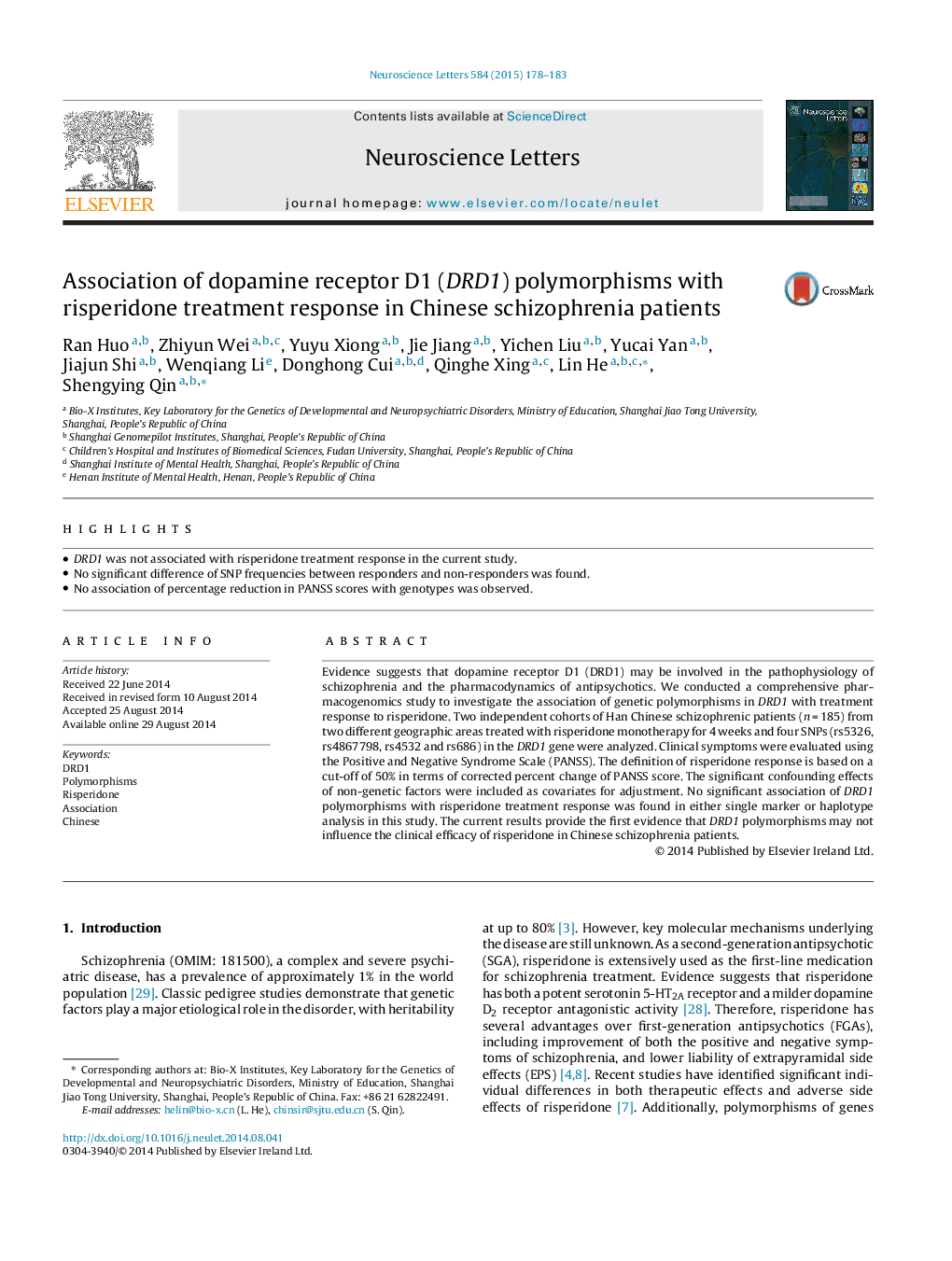| Article ID | Journal | Published Year | Pages | File Type |
|---|---|---|---|---|
| 6281445 | Neuroscience Letters | 2015 | 6 Pages |
â¢DRD1 was not associated with risperidone treatment response in the current study.â¢No significant difference of SNP frequencies between responders and non-responders was found.â¢No association of percentage reduction in PANSS scores with genotypes was observed.
Evidence suggests that dopamine receptor D1 (DRD1) may be involved in the pathophysiology of schizophrenia and the pharmacodynamics of antipsychotics. We conducted a comprehensive pharmacogenomics study to investigate the association of genetic polymorphisms in DRD1 with treatment response to risperidone. Two independent cohorts of Han Chinese schizophrenic patients (n = 185) from two different geographic areas treated with risperidone monotherapy for 4 weeks and four SNPs (rs5326, rs4867798, rs4532 and rs686) in the DRD1 gene were analyzed. Clinical symptoms were evaluated using the Positive and Negative Syndrome Scale (PANSS). The definition of risperidone response is based on a cut-off of 50% in terms of corrected percent change of PANSS score. The significant confounding effects of non-genetic factors were included as covariates for adjustment. No significant association of DRD1 polymorphisms with risperidone treatment response was found in either single marker or haplotype analysis in this study. The current results provide the first evidence that DRD1 polymorphisms may not influence the clinical efficacy of risperidone in Chinese schizophrenia patients.
